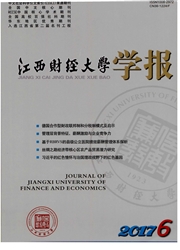

 中文摘要:
中文摘要:
2011年对广东省21个地市10000名退休职工的问卷调查数据表明,退休职工的再就业率为4.6%(男4.27%,女4.54%)。BinaryLogistic模型的回归结果显示,当前广东省的养老金水平对退休再就业的影响显著为负,降低了职工退休后的再就业比率。而二次项的回归系数显著为正说明当养老金水平超过某一拐点之后才会降低退休职工再就业。这是由于广东省养老金水平调整过快造成的。研究表明:教育水平、健康对退休再就业的影响显著为正,工龄的影响显著为负。职务的影响显著为正,机关事业单位与企业职工的再就业行为并没有显著差异。
 英文摘要:
英文摘要:
The questionnaire survey data of 1 0,000 retired workers in 21 cities in Guangdong province in 2011 shows that the re-employment rate of the retired workers is 4.6% (male 4.27%, female 4.54%). The regression results of the Binary Logistic model show that the current pension level of Guangdong province has a significant negative effect on the re-employment of the retired workers, which reduced the re-employment rate. While the regression coefficient of the quadratic term is significantly positive, which indicates that only when the pension level exceeds some inflection point, it may reduce the re-employment rate. This is due to the excessively fast adjustment of pension level in Guangdong province. The study indicates that education level and health have a significant positive influence on the re-employment after retirement; the influence of working years is significantly negative. The influence of position is significantly positive; the re-employment behavior is not different between workers in the public and private sectors.
 同期刊论文项目
同期刊论文项目
 同项目期刊论文
同项目期刊论文
 期刊信息
期刊信息
